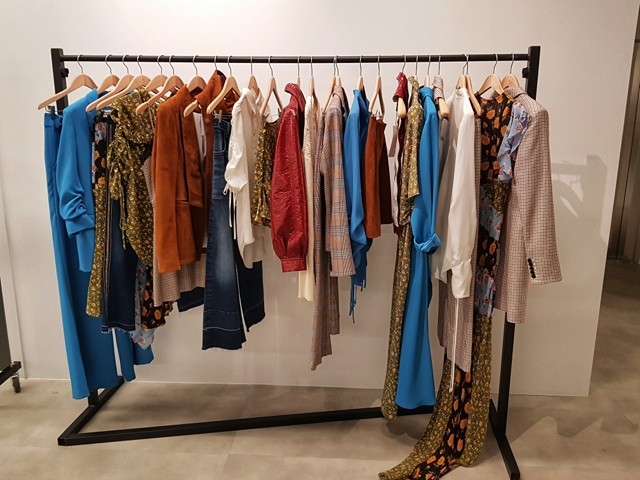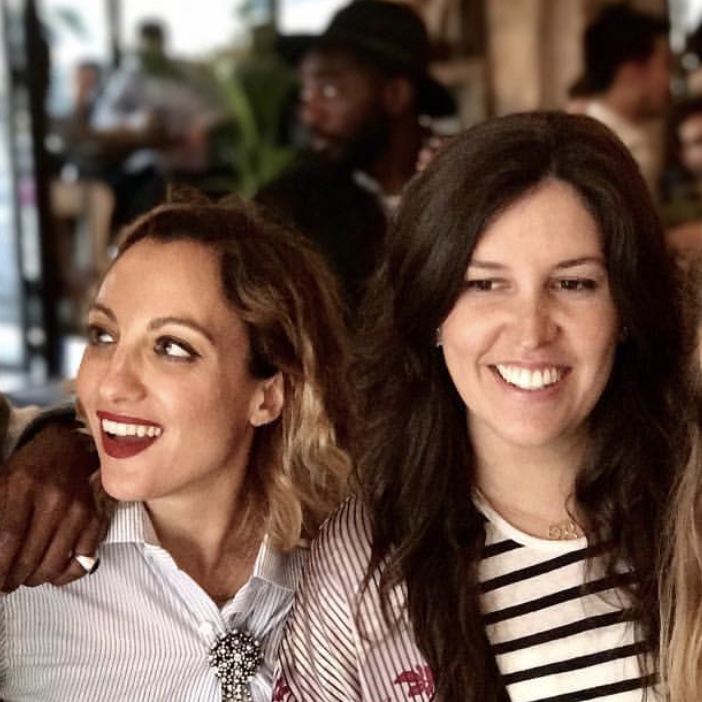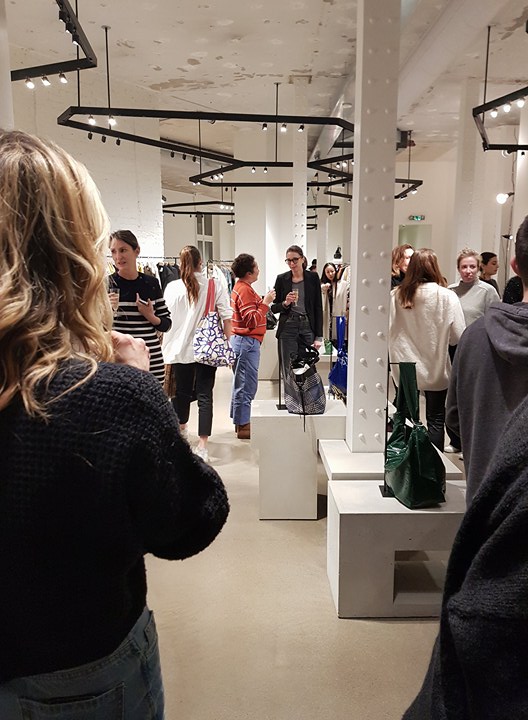Sew Into Fashion: Showroom Queens

I was sitting in the middle of a gorgeous 19th-century living room in the posh 16th arrondissement of Paris, listening to the woman I work for, when the idea for this series first popped into my mind.
She had been nonchalantly speaking on the phone with someone else (undoubtedly either a marketing or a senior officer of a fashion brand), who was asking about her thoughts on the recent collection.
Much to my surprise, the following sentences were mentioned in said conversation: “Middle Eastern clients need longer sleeves and hems, so that needs to be corrected…”, “…Italians don’t like purple, Asians are not fond of green… and then there are some colors you need to add as well per this seasons’ trends...I will send you a spreadsheet”.
I was truly baffled. This woman was instructing a senior officer to not only modify, but sometimes completely change the designs and structure of garments based on a mere hunch (I say hunch, but it’s based on years of experience and a knack for knowing your market). I was amazed at the amount of influence one single person could have, but then again, there’s Anna Wintour.
It was then that I decided I would interview Francesca Pasini and her business partner, Maddalena Valenzano, the dynamic fashion duo. They seem to not only know everyone in the fashion world, but both of them bring something special to the table; they each have their own different experiences, personalities and styles. One is a bit more reserved and classic with a love for spreadsheets and numbers, while the other is eccentric, outgoing and a social butterfly. Each compels a great amount of respect and power and yet, they remain friendly, with a sort of openness that makes them relatable and likeable. The yin and yang and true inspirations to everyone around them.
I’ve had the pleasure of knowing and working with them for a while now, firstly at the Alexander Wang showroom (back in the day when I attended fashion school) a couple of years ago, and now with their new adventure in owning their own showroom currently featuring brands such as Veronica Beard and In The Mood For Love.
Image Credit: Francesca Pasini
Showrooms are very interesting places, and an important part of the fashion process. Many people know there’s a fashion show, and that eventually, it all gets to the store and to the end consumer somehow. But try mentioning a showroom to someone, and then explain how most times, showroom work is unpaid (except for the “gift” at the end, thank you new designer handbag, or dress!). On the off-chance you do get paid, it’s a couple hundred euros here and there.
A showroom is the perfect liaison for brands to interact with clients, to see not only what the trends currently are, but what is being bought and put out in the stores (indicating consumer market trends), enhancing the overall experience with the brand.
Did you always aim to be in fashion? Or how did you start in the industry?
Francesca: No. First I wanted to be a philosopher, then a writer, I started working in the contemporary art business and eventually ended up in fashion as it was easier and well paid. But I actually started loving fashion when I was 16, thanks to the photographer Manuela Pavesi who was living in my home town of Mantova back then it was much easier, it was the nineties after all…
Maddalena: I went through different phases…from pop-star singer (despite being completely out of tune) to vet (despite hating blood and injections) but when I finally got back to reality I always had the feeling I wanted to work in fashion.
What has been your biggest challenge so far?
F: Bet on the right horse, without losing my identity. It means choosing to work for the right fashion brands but keeping space for my private life and brain balance.
M: Balancing work and family.
How do you balance work, life, travelling and family?
F: When I was younger (late twenties) I travelled every week for work. I have visited so many countries, and it used to take me a couple of minutes in the mornings to realize where I was. It was exciting, enriching and I met so many people. But in my late thirties my priorities changed, I had two children and I let my team travel for me and report back. Later, at 39 I understood my family needed me more than ever. So I started my own company and work as a consultant to balance it all. I admit I was very scared at the beginning.
M: Organization, prioritization and doing everything asap (which does not always work in my favor).
“Fashion changes constantly and yet is always similar to itself.”
What is the most interesting part, or the most particular part about the fashion industry in your opinion?
F: The most interesting part are the people who work in fashion: a real sociologic case to study....
M: How trends keep coming back and that true quality brands/items will be fashionable forever.
What skills do you find important/necessary to have, for working in fashion?
F: The most important is to have sense of style and love fashion, experimenting it everyday, even to go grocery shopping. If you are stingy and you don’t want to invest in fashion, go work for a bank!
M: I hate this sentence... but it is true: have a passion for fashion. If you don’t like fashion or have style this is not your industry. Secondly, you must know the competition, the trends, what is out there and most importantly, be open-minded!
You’ve been working in the industry for a while already, how did you learn everything you know so far? Is it through experience and trial and error?
F: Yes, through experience but mostly by having inspiring people beside me. I always try to take examples from people around me and learn from them. Especially from my previous teams, from the sales managers to the interns. Everybody has great ideas, you don’t need to have 50 years of experience before speaking up.
M: I think it is a bit of both, but in my experience I have learned most from people around me. 90% of what I have learnt from this industry I owe to Francesca. The remaining 9% is to be divided in small fractions of all the people I have met and worked with (I’ve learned even from the worst boss ever). 1% I think might be my own character.
What is the most important thing in a showroom or in a commercial environment within luxury? Is it the client experience, merchandising, the models, or the brand/clothes itself, or something else?
F: Definitely the experience: clients go from showroom to showroom. They love to come to a place where they know the people, where the atmosphere is relaxed, personalized and they can breathe and have a calm moment.
M: The brand needs to be hot! Even if you are selling white towels you have to build a complete story around it that stays in the customers’ minds.
Image Credit: Sabrina Scholkowski
How do you know what a client wants? Or what you can sell to them?
F: Depends where they come from (weather, or religion mostly), the current trends, and knowing your audience. I will never sell a mini skirt to a buyer from Al Kobar for example.
M: This you learn with experience but it is also very important to know what is going on around the world. You must know about current events and different cultures too.
What do you think is the secret to running a successful showroom?
F: Having everybody involved happy and motivated.
M: Having the right people! Keep them motivated and best guidance.
What is the most important aspect of a brand?
F: The philosophy, the price, the distribution, the digital communication… it’s a mix of things.
M: Be true to their identity by keeping up with current trends and communication.
What has been the most important thing you’ve learned in all your experiences in the industry?
F: One day you are up, one day you are down and considered a loser. Fashion opinions change constantly, don’t take it too personally.
M: It is very hard to find true, loyal and honest people if you find one, hold on to them.
What is your favorite part or the most satisfying part about your work?
F: Human relations and discover how some clients are really and honestly attached to us.
M: Excel charts! (I love numbers…) When you get all the formulas in place and working, everything is clear, makes sense and is easy to read.
What are some tips you could give from your own perspective or experience, to people wanting to get into fashion?
F: You don’t need to study fashion, you need to experience it. Try to have as many internships as you can while studying, be a pro in excel, and most importantly, you need to love fashion and swim in it in your everyday life.
M: Respect every human being who crosses your path. Keep your ears open and listen, process and act. Be passionate about fashion and be open-minded. Always be informed on what is going on. Be smart and humble! And don’t be ignorant!









